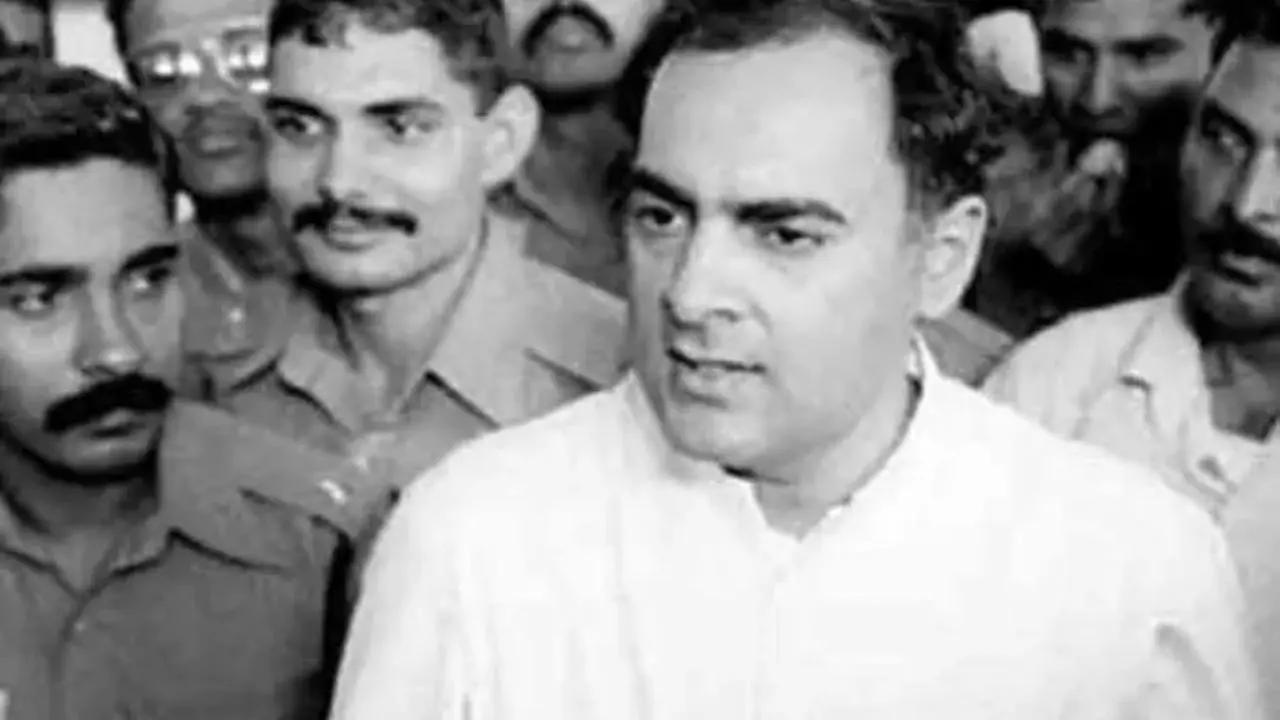Rajiv Gandhi's entry into politics came after the assassination of his younger brother, Sanjay Gandhi, in 1980. He initially served as an advisor to his mother, Prime Minister Indira Gandhi

Former Prime Minister of India -- Rajiv Gandhi. File Photo
Former Prime Minister Rajiv Gandhi, whose death anniversary is observed on May 21st. The sixth Prime Minister of India, served from 1984 to 1989. Here is a brief overview of his life; his life at a glance!
ADVERTISEMENT
Early Life: Rajiv Ratna Gandhi was born on August 20, 1944, in Mumbai, India, into the influential Nehru-Gandhi family. His father was Prime Minister Indira Gandhi, and his grandfather was the first Prime Minister of India, Jawaharlal Nehru.
Education: Rajiv Gandhi completed his schooling from Welham Boys' School in Dehradun, Uttarakhand, and The Doon School in Dehradun. He pursued his higher education at Trinity College, University of Cambridge, England, where he studied engineering.
Entry into Politics: Rajiv Gandhi's entry into politics came after the assassination of his younger brother, Sanjay Gandhi, in 1980. He initially served as an advisor to his mother, Prime Minister Indira Gandhi.
Prime Ministership: Following the assassination of Indira Gandhi in 1984, Rajiv Gandhi took over as the Prime Minister of India at the age of 40. He won the subsequent general elections with a landslide victory, securing a majority in the Parliament.
Also read: Rahul Gandhi to visit Rajiv Gandhi memorial in Sriperumbudur
Achievements: During his tenure as Prime Minister, Rajiv Gandhi focused on several initiatives such as modernizing the telecommunications sector, promoting information technology, and initiating economic reforms. He also played a significant role in improving India's relations with the international community.
Sri Lankan Conflict: One of the notable challenges during Rajiv Gandhi's tenure was the Sri Lankan Civil War. He sent the Indian Peacekeeping Force (IPKF) to Sri Lanka to mediate the conflict, but it ended with India's withdrawal following escalating tensions.
Assassination: Tragically, on May 21, 1991, while campaigning for the upcoming elections, Rajiv Gandhi was assassinated by a suicide bomber in Sriperumbudur, Tamil Nadu. The attack was carried out by the separatist group Liberation Tigers of Tamil Eelam (LTTE).
Rajiv Gandhi's untimely death marked a significant loss for the nation, as he was seen as a promising leader with a vision for modernizing India and bringing about social and economic progress. His contributions to Indian politics and his commitment to national development continue to be remembered and commemorated.
 Subscribe today by clicking the link and stay updated with the latest news!" Click here!
Subscribe today by clicking the link and stay updated with the latest news!" Click here!







